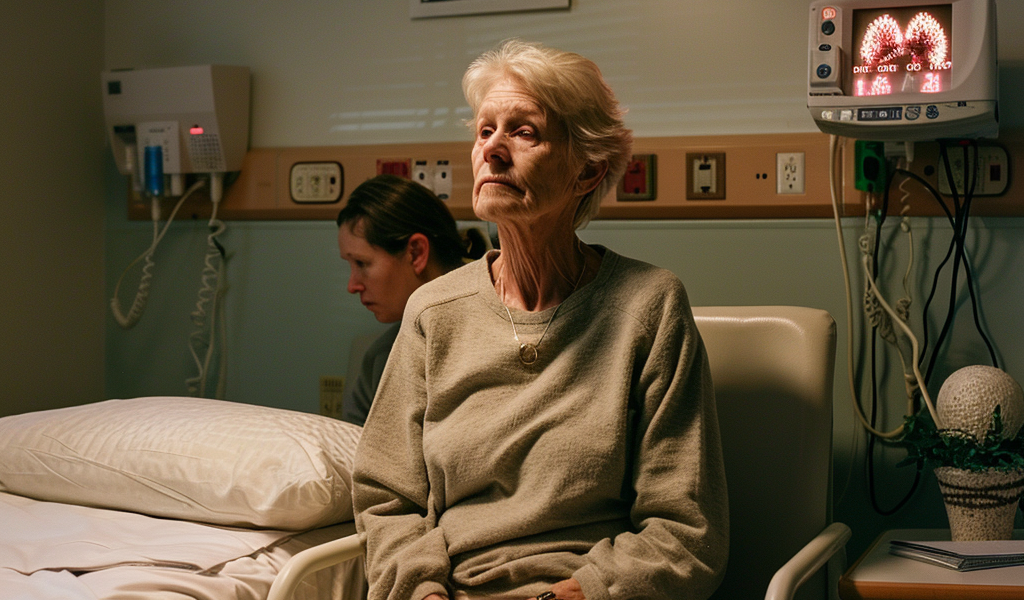Mental Health Risks Following Heart Disease Hospitalization: A Critical Concern
Recent research has highlighted a significant increase in the risk of psychiatric disorders and suicide attempts among individuals hospitalized for cardiovascular disease (CVD). A comprehensive analysis conducted using data from the U.K. Biobank has revealed that the risk for developing a new psychiatric disorder or attempting suicide skyrockets by 83% within the year following a first-time hospitalization for heart disease.
The study, published in the Journal of the American Heart Association, underscores the necessity of focusing on both physical and mental health during the recovery process after a heart-related event. Dr. Huan Song, a professor of epidemiology at the West China Biomedical Big Data Center, emphasized the importance of vigilance regarding mental health issues post-hospitalization. He stated, “If you or a loved one has been hospitalized for heart disease, be aware that mental health issues may arise during recovery. It’s important to monitor for signs of anxiety, depression, or suicidal thoughts. These mental health challenges are common and treatable.”
The research team, led by Dr. Song, conducted a matched cohort study involving 63,923 patients who were hospitalized for the first time with CVD between 1997 and 2020. This cohort was compared to 127,845 matched individuals who had not experienced a CVD hospitalization. Notably, the analysis excluded individuals with any prior history of psychiatric disorders or suicide attempts to isolate the impact of hospitalization for heart disease.
Findings revealed that patients hospitalized for CVD exhibited a higher Townsend deprivation index, increased body mass index (BMI), and a greater proportion of smoking and family history of psychiatric disorders compared to the matched cohort. Additionally, these patients had lower educational attainment and household income, which could contribute to their mental health vulnerabilities.
The study identified a significantly elevated risk for various mental health issues, including anxiety, depression, stress-related disorders, substance misuse, and psychotic disorders, among those hospitalized for CVD. The risk was particularly pronounced in the first year following hospitalization, with an adjusted hazard ratio (HR) of 1.83 (95% confidence interval [CI], 1.58-2.12). Although the risk declined after the first year, it remained elevated, with an adjusted HR of 1.24 (95% CI, 1.16-1.32).
These findings suggest that the period immediately following a heart disease hospitalization is critical for mental health interventions. Healthcare providers are encouraged to implement supportive measures for patients during this vulnerable time. Monitoring for signs of mental distress and providing resources for mental health support can significantly mitigate the risks associated with psychiatric disorders and suicide attempts.
The implications of this research extend beyond individual patients to the healthcare system as a whole. As the prevalence of cardiovascular diseases continues to rise globally, understanding the mental health ramifications of these conditions becomes increasingly important. By prioritizing mental health care alongside physical health treatment, healthcare providers can foster a more holistic approach to patient recovery.
Furthermore, the study’s findings call for increased awareness and education among both healthcare professionals and patients regarding the psychological impacts of heart disease. Support groups, counseling services, and mental health screenings could play a vital role in addressing the mental health needs of patients recovering from CVD.
In summary, the heightened risk of psychiatric disorders and suicide attempts following hospitalization for heart disease is a pressing concern that demands attention. By recognizing the interconnectedness of mental and physical health, stakeholders in the healthcare sector can better support patients during their recovery journey, ultimately leading to improved outcomes and quality of life.





